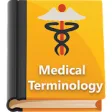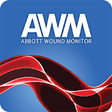Used AHFS Drug Information (2020) for Android?
Developer’s Description
AHFS Drug Information 2020: the #1 most reliable drug and safety resource. Monographs cover information on indications, dosage and administration, contraindications, side effects, drug interactions, pharmacology and pharmacokinetics, chemistry and stability, and more.
DESCRIPTION
Trusted by pharmacists and other healthcare professionals for over 60 years, AHFS DI is the most comprehensive evidence-based source of drug information complete with therapeutic guidelines and off-label uses.
AHFS Drug Information 2020: is the only drug information resource curated by a not-for-profit scientific organization and the only remaining original federal compendium whose authority for establishing accepted medical uses includes the broadest scope of drugs and indications under Medicaid, Medicare Part D, and more.
With expanded and revised content supported by more than 94,000 references and incorporating the advice of numerous subject matter experts, AHFS DI helps you protect your patients.
2020 Updates Include:
- Management of opiate use disorder
- Multimodal pain management strategies for non-opiate analgesic agents and opiate-sparing drugs
- Current best practices for management of pain and sedation in critically ill patients such as the concept of analgosedation and comparisons of various sedative agents used for ICU sedation
- Newly published information on breakthrough oncology drugs approved as part of the FDAs accelerated approval program
- Updating of pharmacogenomic considerations related to dosage adjustments (e.g., tamoxifen) or risk of sensitivity reactions (e.g., allopurinol, phenytoin or fosphenytoin)
- Expanded information on non-oncology off-label uses (e.g., mycophenolate in treating scleroderma; ketamine use in treatment-resistant depression)
- Addition of new therapies for the treatment of seizure disorders, including status epilepticus and intractable childhood epilepsy syndromes
- Use of Calcitonin Gene-Related Peptide (CGRP) antagonists in the preventive treatment of migraines
- Important changes in management of diabetes, including effects of SGLT2 inhibitors and GLP-1 agonists on cardiovascular risk reduction and beneficial effects on renal function
- Special Feature: A discussion of recent evidence questioning aspirins role in primary prevention of cardiovascular events in most adults, including the American College of Cardiology and American Heart Associations positions.
Used AHFS Drug Information (2020) for Android?
Explore More

CeDAR - Ventral Hernia
Free
Medical Terminology A-Z - Offline (Free)
Free
Abbott Wound Monitor
Free
Guided Meditations 1
Free
UPMC EMS Navigator
Free
Butt Workout - LumoWell
FreeSitting Cardio
Free
Patti Vaithiyam Paatti Remedy
Free
Third Eye Awakening
Free15 Minute Workout Free
Free
WoundDoc
FreeimitoMeasure - Measure Wounds
Free